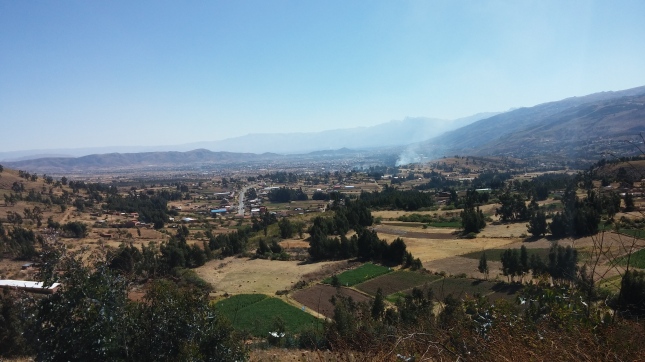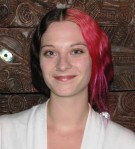Making the Most of Our Time
Sunday, July 27: Early this morning, the Solidarity Bridge team arrived at the hotel in Cochabamba. I’ve been here in town for ten days now, meeting with doctors and NGOs and getting my feet planted on the ground after six years away from Bolivia. The folks from Solidarity Bridge don’t get that kind of luxury - with only six days in town, they have to make the most of their time here. Shortly after they arrived at the hotel, we met with Carlos Laserna, the executive director of PuenteSol, the local Solidarity Bridge office, to discuss our plans for the week. After taking a few hours to rest and center ourselves after a long journey, we set out for Sacaba. To kill some time before our appointment at Clinica Arebalo, Carlos took us on a driving tour of Sacaba. Located east of the city of Cochabamba, the once rural town is being absorbed into the Cocha metropolitan area, housing commuters who work and study in the city each day. However, further down the road, rising into the mountains east of town, the urban periphery gives way to farmland, and we spotted sheep and a few llamas grazing in pasture near the roadside.

When we arrived at Clinica Arebalo, we were greeted by its director, Dra. Patricia Lopez, and Marizol Mamani, the PuenteSol social worker. After brief hellos, the team hit the ground running, reviewing cases. Dr. Tomezsko and Dr. Ozan, with the help of Yvette and Jodi as interpreters, met fourteen patients whom Dr. Lopez had identified as possible candidates for TVT, endometrial ablation with Novasure, or some other surgery.
After all the patients were seen, we had a chance to sit down for a longer meeting with Dra. Lopez over juice and banana bread. She told us about some of the challenges she faces running a medical practice that offers second level services like gynecology and surgery. Other doctors I’ve met in Bolivia have pointed out the emphasis on expanding primary care in the country in recent years. Primary and preventative medicine is of course extremely important, but many medical needs remain unfulfilled. If a patient has a condition that can’t be treated in a primary care setting, he or she will be referred to a second or third-level provider, but many patients can’t afford the cost of more advanced care or travel to be treated by distant specialists. For some more complicated conditions, Bolivians must travel outside of the country for treatment. Doctors like Dra. Lopez who are determined to provide specialist care in a setting like Sacaba, where many people in need of those services have very limited resources and have difficulty obtaining expensive equipment and supplies.

The need for advanced care for low-income patients is precisely the need that Solidarity Bridge works to meet. Not only will patients who wouldn’t otherwise be able to afford something like TVT or Novasure get state-of-the-art treatment, but Bolivian partners are also being trained in how to perform such procedures. Through the incredible generosity of in-kind donors such as Hologic, we are able to leave behind the surgical equipment necessary so future patients can have access.
It was a long day and we’ll have an early start tomorrow, so time to take my “trufi” bus across town to catch a short night’s sleep before the real work starts tomorrow!
